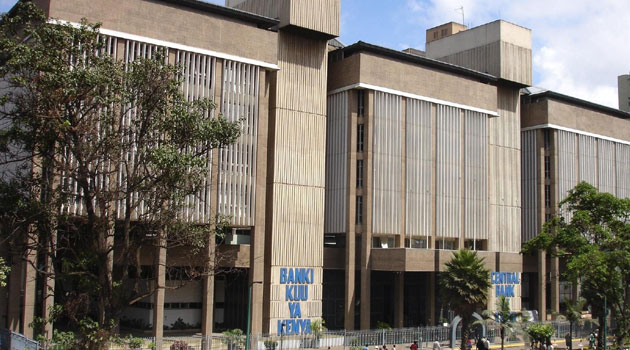
The Bill, recently passed by the Parliament and is waiting assent by President Uhuru Kenyatta to become law, intends to cap bank interest rates at 4 percent, above the Indicative Central Bank Rate/FILE
NAIROBI, Kenya, Aug 8 – “Banks have been ripping us off. We want lower rates. How will people be driven to loan sharks when rates are lower? Shouldn’t that happen with high rates?” asked a curious Kenyan once he heard the Central Bank of Kenya and other key banking players had opposed the possibility of seeing the Bank Amendment Bill 2015 passed into law.
The Bill, recently passed by the Parliament and is waiting assent by President Uhuru Kenyatta to become law, intends to cap bank interest rates at 4 percent, above the Indicative Central Bank Rate. This has met the objection of industry leaders and thinkers who say the move will have adverse consequences on the industry.
Standard Investment Bank Analyst Faith Mwangi for instance says doing so will disrupt Central Bank’s work as it will undermine the effectiveness of monetary policy transmission.
“To a majority, the Bill seems like it is out to solve the great debate of Kenya’s high interest rates. But this isn’t what will happen, instead, it will take away CBK’s efforts of trying to cap the rates in a manner that will not result into bigger problems to the industry,” Mwangi said.
Mwangi adds that while the Bill’s intentions are good, passing the bill into law might mean that banks will get to select who they lend to, which could potentially lock out individuals and SMEs from accessing credit as they are viewed to have a higher risk of defaulting.
“Credit will hence be rationed and given out to those who seem to be more beneficial, because Banks are still out to meet their business obligations,” she said.
Her sentiments mirror those made by Treasury Cabinet Secretary Henry Rotich in March this year when he said that the move would not provide any solution. Rotich said if implemented, banks would in retaliation look for people with high credit scores and lock out those with poor credit scores.
“Banks will lend to blue chip companies. If you control prices then you will lock out people from accessing credit,” he said.
Kenya Bankers’ Association is also against the implementation of the Bill into Law. In a statement, KBA termed the move as a ‘taking material steps backwards as a democracy’. The association said the Bill will potentially create a divide between those with means, and those without access to finance due to their income levels, will be further entrenched.
The Central Bank also issued a statement last week with the same sentiments stating that capping the rates would mean inefficiencies in the credit market and promotion of informal lending channels among others.
The banks’ watchdog did however agree that there is a need to lower the overall cost of credit in the country.
Voicing his opposition to the Bill, Gatundu South MP Moses Kuria noted in a published article that banks would create other means of recouping the losses they incur as a result of capped interest rates. “They will just hike up transaction fees to shore up their non funded income. This will affect the majority of the banking customers who do not borrow as opposed to the minority who borrow.”
Cytonn Investments at the same time opposes the Bill saying it would among other things, strain small banks who will be shut out from the inter-bank market and will have to mobilize funds at rates higher than what they will be getting, hence will only be able to lend out within the stipulated margins.
“It may lead to banks colluding so as to push the yields on the treasury instruments. Additionally, there will be an emergence of shadow banking systems which may result into inefficiencies in terms of transmitting the effects of policy decision into the economy.”
Borrowing trends in the sector have been noted of having a drastic slowdown owing to very high lending rates – 18 percent for a majority, with some tagging rates to as high as 24 percent.
If the Bill becomes law, dank rates will be capped at 14.5 percent based on the current Central Bank Rate of 10.5 percent.
Commercial banks and other lending institutions stand to face harsh penalties for failing to abide by the law.


































